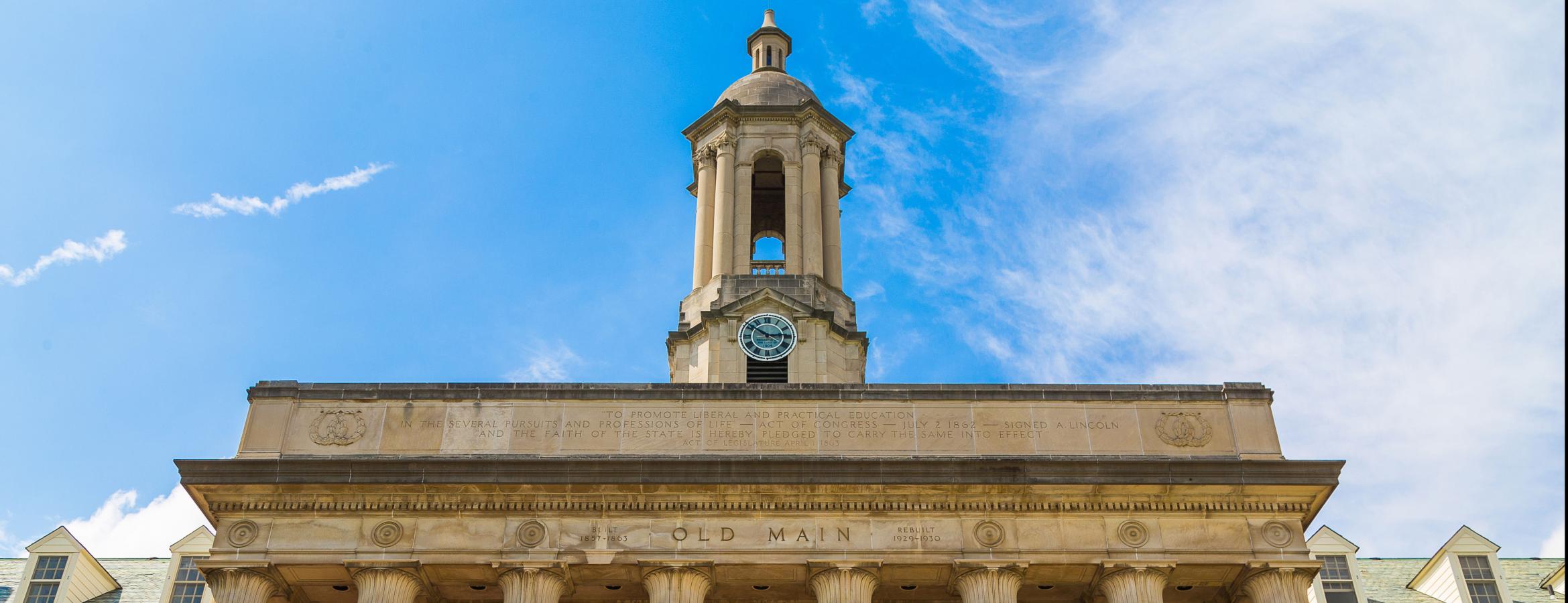
Nitin Samarth, professor of physics and of materials science and engineering at Penn State has been selected as the Verne M. Willaman Professor of Physics. The appointment is awarded by the Office of the President of the University, based on the recommendation of the Dean of the Eberly College of Science, in recognition of Samarth’s research contributions, teaching, and service to the Department of Physics and the Eberly College of Science.
Samarth was the George A. and Margaret M. Downsbrough Department Head of Physics from 2011 to 2023. Under his guidance, the department enhanced the excellence and diversity of its faculty.
“Nitin has made many important contributions to the college and is incredibly deserving of this honor,” said Tracy Langkilde, Verne M. Willaman Dean of the Eberly College of Science. “He served as a mentor when I became department head and was an important thought partner to me as dean. He is a thoughtful and strategic leader, and his impact on the Department of Physics will be felt for many years to come.”
Samarth is an internationally recognized condensed matter experimentalist known for his leading contributions to understanding spin-dependent physical phenomena in quantum materials. He has developed diverse new families of materials platforms using a technique called molecular beam epitaxy. This work led to the birth of two major fields of study: semiconductor quantum spintronics and topological spintronics. The principal discoveries enabled by his materials synthesis are the observation of long-lived spin coherence in semiconductors (published in Science in 1997) and efficient spin-charge conversion in topological insulators (published in Nature in 2014). Samarth has played a key role in the materials community at Penn State and beyond as a co-PI and associate director of the 2D Crystal Consortium, an NSF-funded national user facility that works to advance the frontiers of two-dimensional quantum materials.
"We are very fortunate that Nitin is such a prominent member of the department,” said Mauricio Terrones, George A. and Margaret M. Downsbrough Department Head of Physics. “Not many scientists have such vast expertise. Nitin has significantly advanced the fundamental understanding and technological applications of spin-dependent phenomena at the interface of magnetism, semiconductors, topology, superconductivity, and quantum materials.”
Samarth has published 300 papers in leading scientific journals, and his papers have been featured as cover articles in Nature, Science, and Scientific American. He has written and co-authored highly cited reviews in Science, Reviews of Modern Physics, Nature Materials, and Nature Reviews Materials, is a co-editor of a widely used book on semiconductor spintronics and has communicated scientific advances in popular venues such as Scientific American and NPR.
Samarth is an elected Fellow of the American Association for the Advancement of Science and the American Physical Society. His awards and honors include the Distinguished Alumnus Award from the Indian Institute of Technology, Bombay, in 2019, an Outstanding Physics Alumni Award from Purdue University in 2008, a Faculty Scholar Medal in the Physical Sciences from Penn State in 2008, a George W. Atherton Award for Excellence in Teaching from Penn State in 2007, and a Society of Physics Students Annual Award for Excellence in Physics Teaching from Penn State in 1993. Samarth has held leadership roles in the American Physical Society (APS), including on the Chair-line of the Division of Materials Physics from 2017 to 2021 and currently on the Chair-line of the APS March Meeting.
Prior to joining the Penn State faculty in 1992, Samarth was a faculty fellow in the physics department at the University of Notre Dame. He earned a doctoral degree in physics at Purdue University in 1986 and an undergraduate degree in physics at the Indian Institute of Technology in Bombay, India, in 1980.
The Willaman Professorships were established in 1999 by Verne M. Willaman, a 1951 graduate of Penn State. The professorships provide outstanding faculty members with a supplemental source of support to further their research, teaching, writing, and public service.
